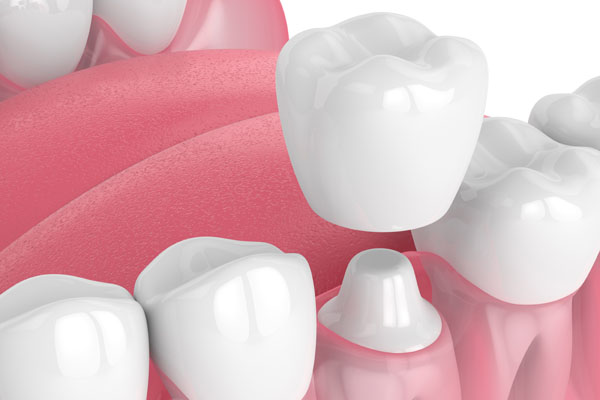3 Tips for Optimal Recovery From the All-on-4® Procedure

The All-on-4® procedure is a tooth replacement option that combines dental implant placement with implant-supported dentures. The two work together to create a hybrid oral appliance that allows for natural eating, confident smiling and normal speaking. However, with all dental procedures comes the possibility of an involved recovery. In the case of the All-on-4® procedure, patients should expect to have a detailed recovery plan in order to heal properly.
Recovering from an All-on-4® procedure
Outlined below are three tips from a general dentist on how to recover from an All-on-4® procedure. These tips can be extremely useful for those preparing for the procedure or for anyone who might be considering the treatment option for tooth replacement.
1. Rest and take it easy
One of the most important things to do after undergoing an All-on-4® procedure is to rest and take it easy. Most patients will be eager to get back to work or school, but without rest, the implant wounds may not heal appropriately. General dentists typically suggest that patients take at least two or three days off from work, school or any strenuous activities that could cause stress on the body.
2. Make diet changes
Another important tip that can help ensure optimal recovery is to make diet changes immediately after the procedure. Because the All-on-4® procedure requires a surgical procedure, the mouth can be extremely tender and sensitive afterward. While these sensations do not last longer than a week, it is advised to adjust eating habits for the time being. General dentists recommend eating a diet consisting of soft foods or even excess liquids. It is best to avoid extremely hard or chewy foods, such as meat with bones, candies, raw vegetables or anything that could hurt the healing wounds.
Additionally, general dentists advise against consuming large amounts of sugar or highly acidic foods and drinks. When the mouth is healing from an All-on-4® procedure, it is more at risk of developing infections. Sugar and acid are typically the roots of cavities in the mouth because they latch onto the teeth and gumlines. Avoiding the consumption of these things for at least a week can help ensure optimal recovery.
3. Practice good oral hygiene
Oral hygiene is important every day, but it is extra important when recovering from an All-on-4® procedure. The mouth becomes susceptible to infections when healing, which makes oral hygiene that much more important. While it may be uncomfortable to brush and floss like normal after the procedure, it is suggested to do so gently but avoid the areas where the wounds are. Another way to ensure good oral hygiene is to rinse with a saltwater solution, which is safe for the mouth while healing.
All-on-4®
The All-on-4® procedure is a great option for those who need to replace missing teeth. However, it is extremely important to abide by the recovery tips mentioned above. Additionally, working with a dentist to get further instructions can ensure an optimal recovery, which is essential for the procedure to work.
Any questions or concerns regarding the All-on-4® procedure should be addressed by a general dentist. Reach out today to learn more or to get started with an evaluation!
Request an appointment here: https://gkdentaloffice.com or call GK Dental PC at (617) 826-6075 for an appointment in our Everett office.
Check out what others are saying about our services on Yelp: Read our Yelp reviews.
Recent Posts
Crowns are commonly used in dental restorations. A crown is a cap shaped like a tooth but hollow in the middle. It fits over a natural tooth that has to be prepared first. Depending on the issue it is correcting, a crown can be used by itself or as a component of another restoration technique.Teeth…
Regular dental checkups are vital to keeping your teeth and gums healthy. You should visit your family dentist at least once every six months. This includes both adults and children alike. Routine dental appointments are essential for good oral health and they offer many important benefits.Tartar removal is an important step in dental appointments that…
Restorative dentistry refers to any type of dental procedure that a dentist performs to restore a damaged or missing tooth. Dental restorations can encompass several procedures that vary in terms of invasiveness, complexity, and what they can accomplish. However, the overreaching goal of all restorative procedures is to improve the health, function, and appearance of…
Individuals who have broken teeth may suffer from a lack of self-confidence. Whether you broke your tooth eating something hard or experienced trauma that directly or indirectly impacted the tooth, it is a good idea to get it fixed. Treating a broken tooth has not only aesthetic benefits but also provides dental and overall health…


